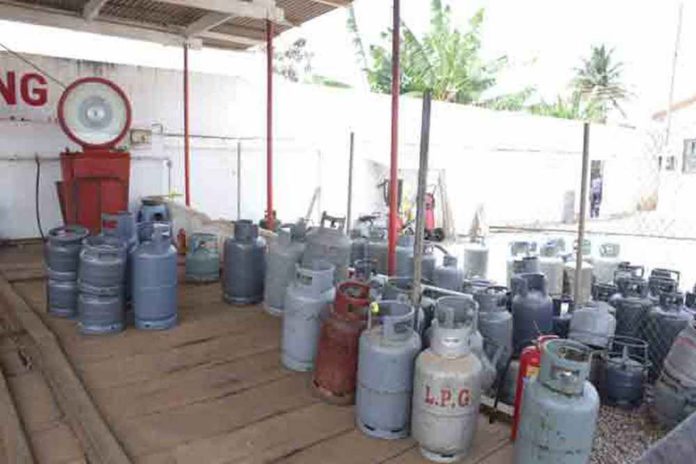Vice President of the LPG Marketers Association of Ghana, Gabriel Kumi, has said no LPG management system can be entirely accident-free.
Speaking in an interview on Adom FM’s morning show, Dwaso Nsem Monday, Mr Kumi explained that, even with regulatory measures, the inherent risks associated with LPG handling cannot be entirely eliminated.
He noted that, the new Cylinder Recirculation Model (CRM), a distribution system which allows a consumer to bring empty cylinders to an agreed point in exchange for a filled cylinder is not safer than the existing model.
“We are not sabotaging the model. However, if anyone tells you that the cylinder recirculation method is safer than the current system, that person should be questioned. We are working with gas, and no system is accident-free. What you need to do as a regulator is to take measures to improve safety,” he said.
Mr Kumi referenced a significant explosion in Kenya that occurred under a similar model, warning that Ghana could face similar dangers if safety measures are not rigorously enforced.
“Imagine we pile about 100 to 200 cylinders, and, God forbid, a fire breaks out. A 14.5 kg cylinder can cause devastation up to half a kilometer wide.”
Responding to sabotaging claims by the Chief Executive of the National Petroleum Authority (NPA), Dr. Mustafa Hamid, at the recent Ghana International Petroleum Conference (GhIPCon) that the LPG Marketing Companies Association opposes the model, Mr Kumi denied the allegations.
He recounted the disruptions caused when the government announced plans to introduce the CRM in 2018/2019, noting that the industry was initially against the model due to its implementation approach.
Despite their concerns, the government persisted with the plan into 2020 and 2021. The Association requested compensation to exit the business, but the government cited a lack of funds. A proposal to create a compensation fund was also rejected.
In a bid to find a compromise, the Association suggested building cages at the 800 LPG stations across the country to accommodate both filled and empty cylinders, allowing the two systems to operate concurrently. This proposal was also turned down by the government.
“There is no transition plan for the new model. They want us to create a new exchange point for the new mode. There is already a declining market in the gas business. And the cylinder recirculation is being run by foreign and semi foreign companies.
“The NPA have aligned with these foreign companies and they can’t stand the competition we are giving them,” he added.
Watch the video below:
READ ALSO:

